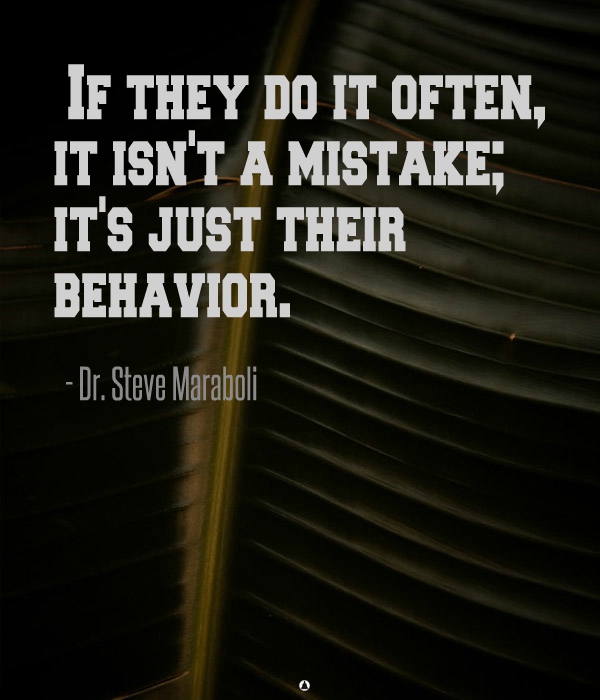Join Our Newsletter
Subscribe with your email to receive the latest news, updates, and exclusive offers.
We can all be negative from time to time and have arguments in our relationships, be that romantic or otherwise. Yet, we need to be able to recognize when normal behaviors turn into toxic and draw a line when we’ve had it enough.
Toxicity comes in all shapes and sizes. It can come in the form of manipulation, blame, blatant lies, harsh, unjustifiable criticism, or devious mind games. Toxicity can be found in your caring parent, your loyal friend, your loving partner, your supportive co-worker – everywhere.
Unfortunately, many of us allow toxic behaviors to affect our life because we’re either unable to recognize them or we lack the courage to call them for what they are.
No matter in what form a toxic behavior appears, it can suck the happiness and energy out of you. It can damage your confidence and threaten your dignity. I can perfectly relate to this because I recently came out of a relationship in which I had to put up with a plenty of toxic behaviors, and I know what a blow that was to my self-esteem and how hard I worked to rebuild it.
Anyway, my experience has taught me that if you set clear boundaries and be strong enough to defend them, no one can take your confidence away from you. You need to remember that you’re an amazing, worthy person that should never tolerate the following 6 toxic behaviors:
1. Persistent negativity.
In life, you get to meet two types of people: those who fill you with positive energy and make you feel good about yourself and those who are a drain on your energy and emotions and feed your mind and soul with negativity.
The latter brings out the worst in you and make you see life from a negative point of view. They can make you doubt your potential and discourage you to follow your dreams. Being surrounded by someone radiates negativity can be very disruptive to your personal growth.
2. Personalizing criticism.
Whether it’s forgetting to buy all the products at the supermarket because we’ve forgotten the list at home or forgetting the birthdays of people close to us, we all make mistakes. Yet, when someone you hold dear uses a simple mistake that you made to start listing your faults, this is nothing else but a verbal abuse.
There’s nothing wrong with criticism as long as it’s constructive and reasonable. But, some people go way across the boundaries. They’ll criticize you with no reason, and even insult you and humiliate you. The person who shows such behavior is usually someone who has a lot of insecurities and low self – esteem. And by criticizing and undermining you, they boost their own fragile ego.

3. Stonewalling.
Stonewalling means that a person refuses to talk or answer your questions. They won’t even listen to you or talk about what you want to discuss. They simply ignore you and give you the silent treatment. And even if they engage, the only thing they’ll do is giving you vague answers.
Additionally, they prevent the other person from expressing their opinions about the subject at hand. Undoubtedly, not only is this behavior rude, but it’s also frustrating and degrading.
4. Scapegoating.
A toxic person never takes responsibility for their bad actions. Instead, they shift the blame onto other people. They can make thousands of mistakes and hurt you time and time again, yet, they’ll never admit it, let alone apologize for it. They can insult and belittle you and then tell you that it was you who brought that upon yourself because you’re too emotional and clingy.
For example, imagine this situation: you go to the club with your friends and one of them gets drunk and ruins the whole night. Instead of apologizing for the chaos they created, he/she starts blaming you for not watching their alcohol intake, implying that the whole situation was your fault.
Yeah, it’s definitely unreasonable and even crazy to blame another person for a thing like that, but to a toxic person, this is pretty normal. They’ll do whatever it takes to make you feel and look responsible for something you’ve never done.
5. Gaslighting.
Gaslighting is a form of psychological abuse because the person who gaslights you uses your own insecurities to convince you that an action never happened or that some words were never said.
The reason for this is that they want to make you doubt your own perceptions and even question your logic and sanity. This type of behavior enables them to say or do something bad to you and then deny that this happened. They can even blame you for making things up and make you apologize for something that’s not even your fault.
6. Threatening.
Threatening is a common toxic behavior for someone who has more power in some sphere of life, such as a parent or a spouse that makes most or all of the money.
If you know someone who displays this type of behavior, then you know they frequently use phrases, such as: “If you don’t give me the information I’m asking you for, I’ll tell everyone about…” In this way, they show you who is in control.
Oftentimes, the person who threatens you can also harshly criticize you, make snide comments about you and insult you. In this way, they humiliate you and damage your self – esteem.
One important thing to note, though, is that you should be very careful if you ever have to deal with someone who shows this behavior because they can often threaten you physically. And even if they don’t, you need to make sure to steer clear of that person, because this type of behavior is quite damaging to your mental and emotional health.